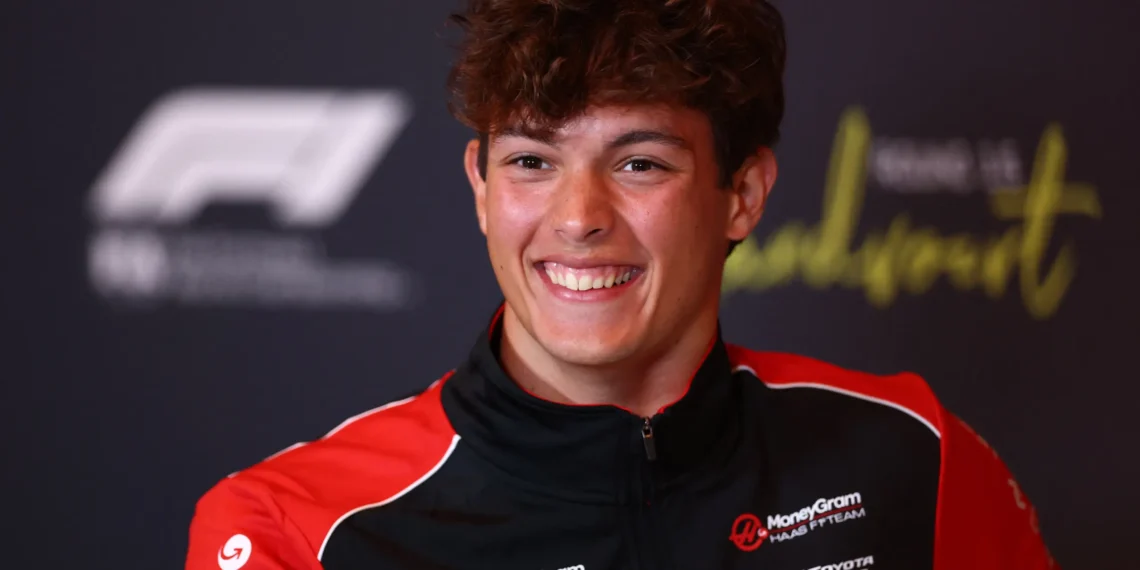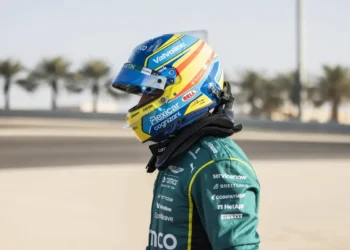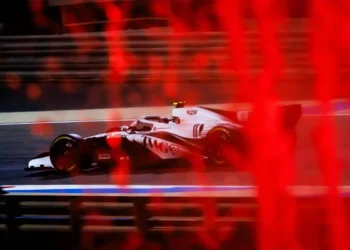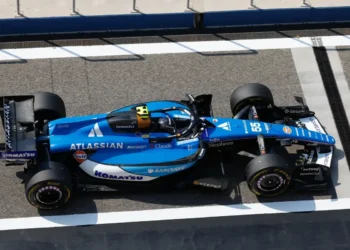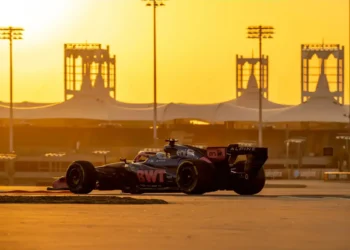Oliver Bearman, the rising star of Formula 1, is on the brink of a critical turning point that could define his career. Following a controversial penalty at Monza, the young driver finds himself facing a potential one-race suspension that has ignited a firestorm of debate within the racing community. In the heat of Baku, Bearman’s response was anything but contrite; he boldly proclaimed, “I guess now if I’m on the outside, I’ll just go for it, no?” This fierce attitude underscores both his competitive spirit and the high stakes he’s facing.
The roots of this predicament stem from an incident during the Italian Grand Prix, where Bearman was deemed responsible for denying fellow competitor Carlos Sainz enough racing room during a daring overtaking maneuver at the Variante della Roggia chicane. The stewards slapped him with a 10-second time penalty and two penalty points, pushing the total to a precarious ten. This puts him perilously close to a ban, forcing him to reconsider his racing tactics in a sport where split-second decisions can have monumental consequences.
The situation has only grown more convoluted with the Williams team successfully appealing Sainz’s own penalty for a collision with Liam Lawson in the Dutch Grand Prix. The FIA’s decision to classify that incident as a “racing incident” has only muddied the waters further, leaving drivers and fans alike grappling with the ever-elusive definition of what constitutes “racing room.” The FIA’s stewards highlighted Sainz’s risky positioning during the incident, stating, “Car 55 [Sainz] contributed to the incident by taking the risk to drive close to, and on the outside of, Car 30 [Lawson] when Car 55 had no right to room there.” This ruling has sparked outrage and confusion, as it seemingly contradicts the very principles drivers are expected to adhere to.
Bearman, in his own reflection, expressed his frustration: “It’s my fault for getting the penalty regardless of if we agree with the rules or not. But it’s a tough one to take. That’s not how any of us have grown up racing, really.” The young racer articulated the dilemma many drivers face: the clash between instinctive racing and the rigid regulations imposed by governing bodies. “In the end, that’s what the rules state. So I do feel a little hard done by,” he added, emphasizing the emotional toll that such penalties can inflict on a driver’s mindset.
With the rules constantly evolving, the challenge for drivers is immense. Bearman elaborated on the mental strain: “Imagine you’re going into the corner, you have a guy alongside you… you’re deciding, OK, I’m going to fight for this corner.” The pressure is exacerbated by the need to recall complex regulations while racing at high speeds. He lamented, “You don’t then think about the three-page guideline they sent you in January. It’s not possible.”
As Bearman looks ahead, he knows that he must tread carefully. The penalty points he accrues are on a rolling basis, meaning he will need to keep a clean slate for the next four rounds to avoid further repercussions. “I would hope to get given space on the inside, but clearly there’s a possibility that that won’t happen, so I can’t take that risk,” he admitted. The stakes are higher than ever, and the shift in his strategy is palpable: “I guess I’ll just go around the outside now…”
In a sport where every move can make or break a career, Oliver Bearman’s next steps will be crucial. The tension in the air is thick as fans and competitors alike await to see how this promising talent will navigate the treacherous waters of Formula 1 racing and whether he can rise above the penalties that threaten to derail his ambitions. The question remains: can Bearman adapt and survive in this high-octane world, or will the weight of the rules prove too heavy? Only time will tell.

